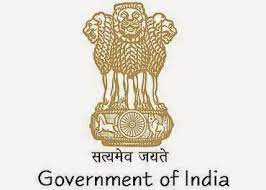Official Portals
Government official portals are websites or web applications developed and maintained by government organizations to provide information, services, and resources to the public. In addition to providing essential services, these portals serve as a central hub for citizens, businesses, and other stakeholders to access government-related information, interact with government agencies, and avail various online services. As a result, these portals simplify access to critical resources, making it easier for users to find the information they need.
Moreover, these portals often feature real-time updates on policies, regulations, and public initiatives. This allows citizens to stay informed about any changes or new developments. Consequently, the public can make more informed decisions based on the most current data available.
Furthermore, government portals enhance transparency and accountability by offering direct communication between the government and the public. In doing so, they provide a more accessible and user-friendly way for people to engage with government services, reducing the need for in-person visits. Therefore, these portals play a crucial role in improving the efficiency of government services while ensuring public access to accurate and timely information.

Key Features and Functions of Government Portals:
User-Friendly Interface:
Government portals prioritize a user-friendly interface, ensuring accessibility for citizens. In addition, intuitive design and navigation contribute to a positive user experience.Comprehensive Information:
Government portals serve as centralized hubs for information, offering comprehensive details about public services, policies, procedures, and relevant announcements. As a result, this enhances transparency and public awareness.Online Services and Transactions:
Government portals facilitate online service delivery, allowing citizens to complete transactions, submit forms, and access services remotely. Therefore, this promotes efficiency and reduces the need for physical visits to government offices.Secure Authentication:
To ensure the security of sensitive data, government portals incorporate secure authentication mechanisms. This, in turn, protects user information and maintains the integrity of online transactions.Personalized User Accounts:
Citizens can create personalized accounts on government portals, enabling them to track applications, receive updates, and access personalized services based on their profiles. Consequently, users benefit from more tailored services.Mobile Compatibility:
Modern government portals are designed to be compatible with mobile devices, providing citizens with convenient access to services through smartphones and tablets. This ensures that citizens can easily interact with the portal at their convenience.Multi-Language Support:
To cater to diverse populations, government portals often offer multi-language support, ensuring that information and services are accessible to citizens with different language preferences. As a result, language barriers are minimized, improving user experience.Accessibility Compliance:
Government portals adhere to accessibility standards, making them inclusive for individuals with disabilities. This includes features such as screen readers and alternative text for images.Feedback and Grievance Redressal:
Integrated feedback mechanisms allow citizens to provide input and report issues. Moreover, grievance redressal systems ensure prompt resolution of citizen concerns and enhance accountability.E-Government Services Integration:
Government portals integrate various e-government services seamlessly. For instance, services related to tax payments, license renewals, and permit applications are consolidated into a unified online platform.